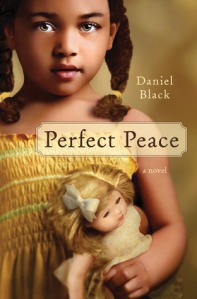At the center: a young woman who calls herself Bride, whose stunning blue-black skin is only one element of her beauty, her boldness and confidence, her success in life, but which caused her light-skinned mother to deny her even the simplest forms of love. There is Booker, the man Bride loves, and loses to anger. Rain, the mysterious white child with whom she crosses paths. And finally, Bride’s mother herself, Sweetness, who takes a lifetime to come to understand that “what you do to children matters. And they might never forget.”
A fierce and proactive novel that adds a new dimension to the matchless oeuvre of Toni Morrison.”
It has taken me a minute or two to write about Toni Morrison’s God Help the Child, but I’m essentially here. I say "essentially” because I still haven't wrapped all my thoughts around the book; it’s a Morrison novel so I have to dig deeper than my initial reading to get the dept of its context (which often leads to over-thinking, analyzing, and a necessary re-reading). So I have to write this as I go, and keep it brief before I write myself right off the damn page. Low pressure.
I enjoyed God Help the Child–for a variety of reasons. One was Morrison’s conciseness. While I’m always there for soaking up her way with language, I’m sometimes left confused and bewildered as it concerns how she paints a scene. Thankfully, God Help the Child gave me little trouble in managing Morrison’s writing, style, and narrative flow. In essence: I gathered clarity of her scenes and overall story. The prose in God Help the Child didn't feel like mental power tumbling to shape a clear picture/comprehension of what was taking place throughout the characters' narratives. Nor did her usual poetics (did I just make that up?) override scene and direction. This allowed me to stick with the book without getting lost or wandering toward outside distractions, similar to what happened during my reading of A Mercy.
Nonetheless, the most prominent reason I enjoyed the book came from its identifiable theme on how we carry what’s done to us as children (mainly by her parents) into our adult lives. The book’s exploration into uncovering that theme was many times rough, haunting, and maybe even barbarous. However, I found those tougher avenues to be honest and consistent with my take of the book's objective, albeit unsettling. God Help the Child is an emotional peek into the psychological development behind children, and it doesn't hold back from darker paths. From self-acceptance, fighting conditional love, and finding self-respect, God Help the Child touches it all. And I really like that Morrison took on this because, as black people, we almost swerve away from psychological concerns in place of stepping into churches for spiritual solutions. At least that thought came to mind once I finished the book.
Nonetheless, there were moments where I wanted a little bit more story and closure from some characters, one being Bride’s friend, Brooklyn. And there were also times where I felt a lot more telling took over showing. However, the dept that Morrison takes us through Bride and her beau, Booker (whose story I found the most compelling of them all), makes up for it all. With these two, I felt like Morrison really takes you places you'd never even been before with a character. (Just read about their journey and you'll see.)
I've always rung my hands over this personal topic, but God Help the Child is another book where I reflected back to those feelings I had growing up. While it wasn't anywhere near as severe as Bride’s case, the lack of praise I felt growing up definitely resurfaced while reading God Help the Child. Which, in turn, only propelled my connection with the book, characters and themes.



















